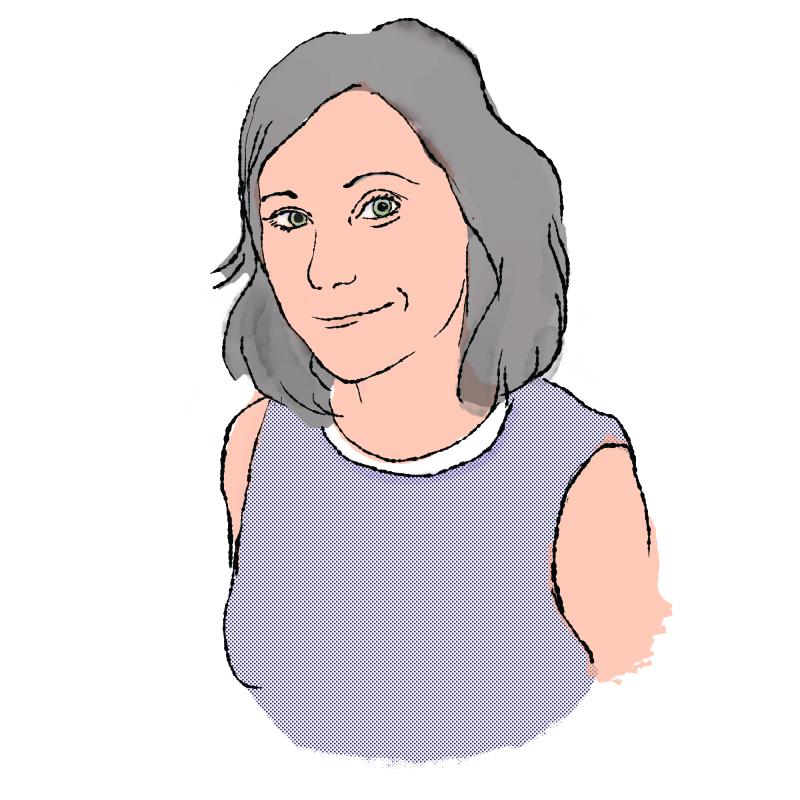I am pro-abortion in the same way I am pro-triple bypass surgery and chemotherapy. In general, I am “pro” any helpful, legal medical procedure.
Being pro-abortion is different than being pro-angioplasty, though, and that’s because, ostensibly, there is a second human being — with all the attendant rights — involved.
But I don’t believe that.
Abortion is a medically necessary procedure that women have a right to access, but obtaining one is becoming a more and more difficult prospect for many women — even in liberal Massachusetts. The state has 22 clinics and hospitals where abortions are performed. There are none located in Hampshire or Berkshire counties, one in North Adams, and two in Springfield — Planned Parenthood and Baystate Medical Center. There are, however, six “pregnancy help centers” in the area. These are offices set up to give the appearance of providing unbiased counseling to women uncertain about a pregnancy. In reality, the centers are anti-choice fronts, many of which mislead women about abortions and encourage them to give birth.
There needs to be a more honest and open conversation about abortion for the procedure to become not just accessible, but acceptable. Because it saves lives. About 21.6 million women undergo unsafe abortions every year, according to the World Health Organization, proving women will take considerable personal risks to end unwanted pregnancies. To get the conversation going, allow me to dismantle some anti-choice propaganda.
Life starts at conception.
The conversation about abortion has long been defined by people who imbue the words with meanings that were never intended. The one that is most upsetting is the hijacking of the word “life,” as in life starts at conception or soon thereafter. Many of us have accepted that definition without reflecting on what life is. A fertilized egg is not life, it’s an egg with some extra DNA. Abortion is not the end of a life, it’s the termination of a chance for life. Women and men regularly terminate the chances for life that dwell within, either by allowing Aunt Flo to come for her monthly visit or by slipping on a condom.
Women regret their abortions.
Studies on the emotional impact of abortions have been conducted for nearly two decades and they all pretty much find the same thing: Women don’t feel sad or guilty about their abortions unless the people around them castigate them for their decisions. The most recent proof came in late July when the peer-reviewed journal PLOS One published a three-year longitudinal study of 956 women who had undergone abortion at 30 centers across the nation. On a biannual basis, the women participated in interviews about the level of regret they may have about their abortions. The study found that 95 percent of women did not regret their abortions.
Women who get abortions are sluts.
When people talk about the kind of women who just love to get abortions, the strawwoman they conjure is typically young, irresponsible, and inexcusably sexual. But the truth is 60 percent of the women having abortions already have children. And the reason they’re having abortions is so they are more able to take care of the people around them. Women typically give multiple reasons for obtaining an abortion. Three-fourths cite responsibility to others, including children; three-fourths say they cannot afford a child; three-fourths say that having a baby would interfere with work, school or the ability to care for other people; and half say they do not want to be a single parent or are having problems with their husband or partner, according to the Guttmacher Institute, a clearinghouse for sexual and reproductive health research.
This isn’t about controlling women.
The hell it isn’t. If control weren’t an issue, why have women been marginalized in the establishment of abortion laws? In 1973, the year Roe v. Wade was decided, there were 18 women in Congress and the Supreme Court was all men. The spread is better now, but women are still outnumbered by men when it comes to making and interpreting laws. Today there are 104 women in Congress, making up a little under 20 percent of U.S. national lawmakers, and four women sit on the nine-member high bench. Still, time and again, we see all-male panels making decisions about abortion for women, including the May 2013 hearing of the House Judiciary Subcommittee on the Constitution to discuss a ban on abortions after 20 weeks of gestation. The same boys club got together again in 2014 to talk about how to create legal avenues for insurance companies to weasel out of covering abortions.
The stated goal of the anti-choice crowd is to encourage all pregnant women to give birth. But instead of helping to alleviate the issues that drive women to get abortions — responsibility for others, inadequate personal finance, inability to get time off school or work — more and more restrictions are put on access. The pro-life movement doesn’t want to aid women. It wants to have control over their bodies to stop them from getting abortions.
The fetus is a unique and separate life from the mother.
Except it isn’t, in any sense of the word, separate from the mother. A mother is not an incubator; she’s a woman with rights. A fetus is physically bound to its mother and requires her to sustain existence. It cannot survive without the mother, therefore it is not separate from her. Due to this, a mother’s life, needs, and desires come before that of a fetus. And that includes her right to abort it.•
Contact Kristin Palpini at editor@valleyadvocate.com.



